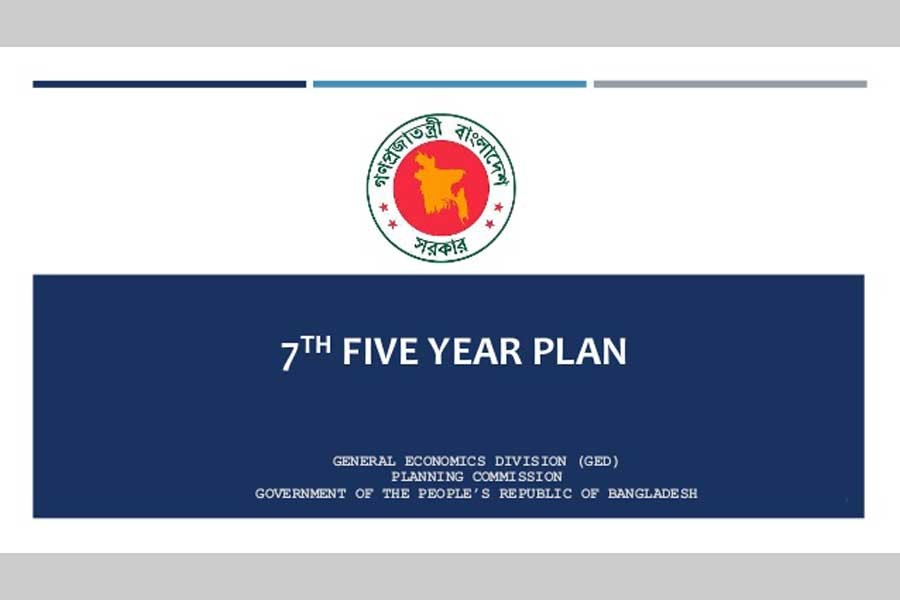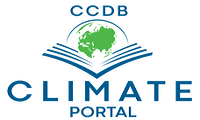Sectoral inputs towards the formulation of Seventh Five Year Plan (2016 – 2021) CLIMATE CHANGE AND DISASTER MANAGEMENT

The Government of Bangladesh has initiated the process of formulating its Seventh Five Year Plan for the period 2016-2020. A total of 28 background papers, mostly sector-specific, have been identified – each of which will be completed as inputs towards formulating the Plan. The GOB recognizes that the country is highly prone to a variety of hazards and her disaster risk reduction needs are amongst the highest in the world. Moreover, the country and its poor people are most likely to be severel affected by global climate change, which in turn will exacerbate hazard related adverse impacts. As per GOB decision, a paper on climate change and disaster risk reduction is perceived to provide insight into the GOB’s current state of preparation, delivery of services, gaps between needs and services being provided, and future directions to avoid major adverse implications of both climate change and disaster risk reduction. This paper provides information, analyses and recommendations so that the GOB can utilize it towards devising its Plan by integrating concerns and responses on climate change (both adaptation and mitigation) and disaster risk reduction. The GOB recognizes that the country is still prone to hazards, a few of which often turning into disasters. It also recognizes that frequency of a certain type of hazards has increased over the years. Climate change has slowly been manifesting itself by aggravating a few climate induced hazards. Although, major catastrophic changes in climate system might not occur during the 7th FYP period, the cumulative effect of small changes would still make the country more susceptible to high intensity hazards, which warrant planned approaches towards reducing hazard related risks. The GOB recognizes people’s own initiatives and coping strategies towards facing the adverse impacts of hazards. The GOB has also been invested a large amount and deployed institutions to offer protection measures, early warning systems, during- and post-hazards relief and recovery over the past four decades. Although many of the above responses are gender neutral, the GOB is willing to consider gender sensitive responses in its future activities in this regard. Policies and legal frameworks have been formulated in order to equip the GOB machinery to consider steps towards reducing risks of disasters and climate change. In recent years, the GOB has produced a National Plan on Disaster Management, formulated a (draft) Policy on Disaster Management, revised its Standing Orders on Disaster, and enacted its legal framework for disaster risk reduction. Efforts are being made to fulfill GOB’s promises through the Hyogo Framework of Action towards providing DRR services to its citizens. On climate change, Bangladesh Climate Change Strategy and Action Plan has been formulated, which has been complemented by the establishment of a number of institutions and funds so that both adaptation and low carbon development may be addressed adequately through the engagement of various stakeholders including the government agencies. Various initiatives of the GOB has received global accolade and generally accepted as amongst best practices across the globe.
Despite such groundbreaking initiatives and policy frameworks, the GOB recognizes a few challenges which needs to be overcome in order to provide adequate services to the citizens towards reducing risks of hazards and disasters with or without climate change and to steer the country’s economy in a low carbon and energy efficient pathway. The following are identified as current limitations which require immediate attention.
Limited understanding, knowledge and capacity.
Inadequate management skills at all tiers.
Adaptation priorities are yet to be set out.
Inadequate integration of climate risk with development planning and budgeting.
Weakness in implementation, monitoring and shared learning.
Limited financing.
Weaknesses in institutional coordination
There is no denying the fact that all the above issues are needed to be addressed as soon as possible to ensure sustainable journey to development, defying all climate induced hazards and disasters. In both DRR and CCA, the GOB faces a few common challenges. Lack of scientific understanding, knowledge and skills to devise appropriate actions in anticipation of a hazard is a major limitation. It is true that the GOB has developed National Disaster Management Plan and Bangladesh Climate Change Strategy and Action Plan in the past. However, it is the lack of capacity and managerial skills of government officials at all levels which pose an obstacle in translating the plans into tangible and appropriate actions. The 7th Plan will therefore focus on building capacity on both DRR and CCA. DRR and CCA cut across many sectors. Major actions therefore require inter-agency coordination, which appears to be difficult to achieve given the current institutional arrangements. However, a sustainable solution will not be achieved without ensuring coordination among various agencies, trying to achieve the same goals. Moreover, doing similar things to address a common issue, however without coordination, warrants additional resources due to duplication which needs to be addressed immediately. Therefore, the 7th Plan will emphasize on institutional strengthening and
inter-agency coordination. In this pursuit, policies on both DRR and CCA will be developed. The DRR policy is in its draft stage which will be finalized while efforts will be made to develop policy on climate change during the Plan period.
- Data Collection Period: January 2015
- Author(s): Ahsan Uddin Ahmed, Saleemul Haq, Mahbuba Nasreen and Abu Wali Raghib Hassan Download

